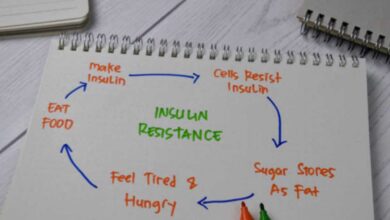8 Ways For Supporting Loved Ones in Mental Health Crisis
Effective Strategies for Helping During a Psychological Crisis and Preventing Suicide
- During a difficult mental phase, we can be plagued by feelings of overwhelm, extreme despair, and suicidal thoughts.
- You can support a loved one at this point by asking what they need and listening to them.
- If they share their suicidal thoughts with you, you should stay with them and seek help through hotlines.
Feeling worried or anxious when a loved one is going through a difficult mental phase in their life is perfectly normal. But you can help them. A psychological crisis can be the reaction to trauma or other stressors that severely limit daily life. The stress can sometimes become so extreme that thoughts of harm or suicide can be triggered. But that doesn’t have to apply to everyone.
The first step to being there for someone is to always remember that this person did not choose these circumstances. So remember: A mental crisis is never the fault of those affected. Another important point is knowing when to offer your help and knowing how to recognize such a crisis.
According to psychiatrist Andrew Davis, of Kaiser Permanente Clinic in Maryland, USA, the following can be signs that someone is going through a mental crisis:
- Abrupt mood swings and increased restlessness
- Self-harm
- Increased abuse of various substances
- withdrawal and isolation
- Psychosis or detachment from reality, such as hallucinations and delusions
- paranoia
- Inability to perform everyday tasks or basic care, such as eating, showering, or getting enough sleep
Here are eight expert tips on supporting those around you when they’re going through a difficult time.
Discover 10 effective tips for mental rejuvenation and complete relaxation of the brain
1. Help them contact the right places
If someone in your life is considering harming themselves or others, or if you are simply concerned about their health and well-being, you can help them contact a crisis counselor.
According to the clinical social worker and founder of Reclaim & Rise, Tavi Hawn, these counselors can be of great help because they are trained to:
- To listen empathetically
- Discuss strategies for relieving stress, such as calling a friend, going for a walk, or listening to music
- To advise people about further contact points
- Supporting your loved ones to learn simple techniques, such as gentle stretching or focusing on the breath
2. Offers distractions
Davis recommends helping the sufferer find a distracting activity that creates some mental distance from the source of the suffering and helps them stay in the present.
You can try the following ideas:
- Watch a feel-good movie
- Paint, draw, or work on another creative project
- Going out for a cozy meal or cooking together
- Go for a walk together outdoors
However, there is no one-size-fits-all solution, so psychiatrist Zishan Khan advises asking your loved one what would be good for them at this moment. If they say they don’t know, it’s okay to offer suggestions — or ask if maybe it would be better just to sit and talk.
3. Ask what they need
Instead of assuming you know what people need or feel, ask questions. The following questions might help you:
- What can I do to make your life easier right now?
- Is there anything I can do for you to make you feel less overwhelmed?
- I would very much like to spend time with you. Is there anything you feel like doing – something that would bring you joy?
“Maybe they need someone to take responsibility for some steps on the road to recovery, like checking in after therapy appointments,” says Stephani Jahn, a mental health counselor. “Or maybe they find it helpful to go shopping or cook together once a week to make life easier,” says Jahn.
Note: Keep in mind that sometimes it’s difficult to know what might help at the moment due to the heavy load, so you might not get an answer right away.
Read Also: The Benefits of Outpatient Mental Health Treatment for Adolescents, Teens, and Young Adults
4. Keep your ears open for suicidal thoughts
It may feel scary to bring up the topic of suicide, but you should always ask yourself if your loved one has ever thought about ending their life. The notion that talking about suicide can increase the risk of attempting suicide is just a myth. Experts have found that talking about suicide can both reduce suicidal thoughts and improve psychological well-being.
The National Alliance on Mental Illness (NAMI) recommends saying something along the lines of, “When people are going through what you’re going through and they’re struggling with such intense emotional pain, sometimes they think about suicide. Has that ever crossed your mind?” When you ask this question, people know they can safely talk to you about their suicidal thoughts.
5. Listen and give affirmation
Just listening when a loved one shares their experiences without judgment is invaluable support, says Khan. You could start a conversation by saying, “I’ve been noticing [XYZ’s behavior] lately and I just want to make sure you’re okay because I know you’ve been through a lot lately. How do you feel?”
Then give them your undivided attention and make room for the uncomfortable emotions they’re struggling with, advises Anisha Patel-Dunn, a licensed psychiatrist and chief medical officer of LifeStance Health.
Patel-Dunn says that trying to solve the problem or cheering up the other person on a gut level can also unintentionally weaken the person’s feelings. However, you can help normalize the sufferer’s experience by offering affirmative statements like, ‘It makes sense that you’re feeling overwhelmed,’ or ‘That sounds stressful,’ says Khan.
6. Supports her in finding a therapist
If your loved one already has a therapist, you can encourage them to reach out to them during a crisis. If they don’t already have a therapist, Khan advises helping them find one. You can search the internet for counseling or therapy.
You can also help by asking prospective therapists if they accept new patients and if your loved one’s insurance will cover it. But you can also make an appointment directly for your loved ones. Davis also suggests driving the patient to their appointment or arranging childcare if this is an impediment.
If your loved one doesn’t have access to therapy for some reason, you can also help them find support groups. You can also find them online and make an appointment.
7. Stay in touch
It’s important to keep in touch with a loved one going through a mental health crisis—not only to look out for signs of suicidal or self-harm thoughts but also to remind them that you care about them. Just a quick phone call or text saying, “Hey, I was thinking of you today, how are you?” can go a long way.
“Many people do not ask for help because they are either afraid of possible judgment, ashamed or embarrassed, or because they fear being ignored and rejected. They need reassurance that they are not alone, and expressing concern and compassion shows them that they are worthy of love,” says Khan.
You can build a network of support for the affected person by encouraging other friends and family members to reach out, especially on days when you know you won’t have an opportunity.
8. Know when to seek medical attention
When your loved one is having suicidal thoughts, you may instinctively want to take them to the ER—but police officers and ER staff don’t always know how to handle mental health crises. Hawn says that calling in the police during a mental health crisis can be traumatic or even deadly in some cases, especially for people belonging to minority groups.
In most cases, Davis recommends not going to the emergency room but instead contacting a local mobile crisis intervention center, the victim’s therapist, or a crisis hotline. However, you may need to contact an emergency room immediately if your loved one is in an acute crisis. These are reflected in the following factors:
- Hallucinations, delusions, or other signs of psychosis
- A suicidal plan or an active intention to take one’s own life
- Other life-threatening physical symptoms such as wounds from self-harm or irregular breathing from excessive alcohol or drug use
If calling an ambulance, you should mention over the phone that this is a psychiatric emergency and you need someone who specializes in this. You can also call the local hotline if you need a specialist while speaking to the police.
Read Also:
Mental Regeneration – 10 tips to really switch off and relax your brain
Our summary
When someone you care about is experiencing deep and overwhelming pain, you may feel lost, scared, and don’t know how to help.
However, remember that the sufferer did not choose to feel this way. There are several things you can do to support the affected person during this difficult time. For example, if you listen to their concerns with empathy and without judgment, you can give them much-needed comfort.
“Acceptance and support from loved ones are incredibly valuable when it comes to recovering from crises like this,” says Jahn. While some people need extra help finding a therapist and managing everyday tasks, others may need a little time with you or a distraction. If you don’t know exactly what the person concerned needs from you, just ask.








